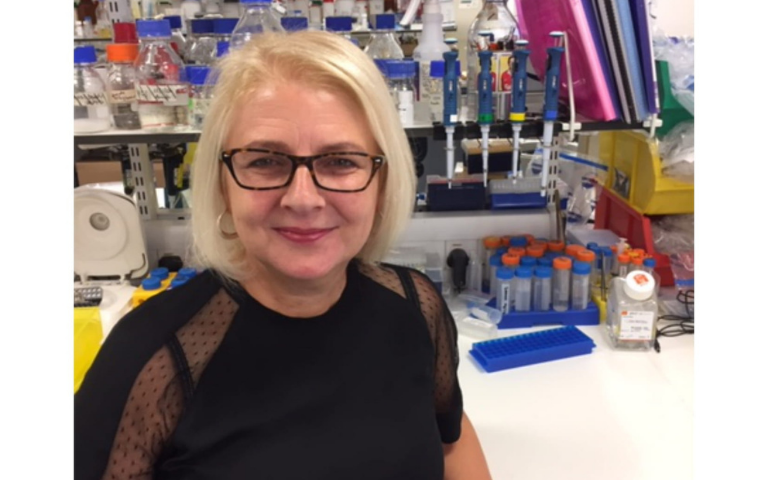Alison Hardcastle

Can you tell us about your interest in genetic eye disease and why you think this is an important area to study?
Genetic eye diseases affect many individuals and families, and often lead to profound loss of vision. If we are to develop therapies for these conditions, we need to understand the cause. Finding the genetic cause of inherited blindness enables accurate diagnosis for these very heterogenous conditions, and further study to investigate how these genes and variants cause vision loss, and the development of new therapies to prevent loss of vision.
Can you tell us about what you are working on at the moment in this particular area?
Once we have identified the cause of disease, we use stem cells to generate elegant 2D and 3D models in the lab for the cells and tissue of interest such as the retina and cornea. We then use these models to determine how the genomic variants lead to cell dysfunction and cell death, and to test new therapies. We are currently focussed on antisense oligonucleotide therapies to restore gene function for retina and corneal diseases.
Can you tell us about a piece of research that you are particularly proud of?
Investigating how genome variants in non-coding regions cause disease is challenging. Our recent research, in collaboration with Dr Susan Roosing’s group in the Netherlands, has revealed complex structural variants as the cause of retinal degeneration in many families. We used our 3D retinal organoid models derived from patient stem cells to experimentally determine how these structural variants alter the 3D genomic landscape, and found that they enable contact of a retinal enhancer with a gene that should not be expressed in the retina.
The IoO work closely with Moorfields Eye Hospital and Moorfields Eye Charity. Can you tell us how this relationship developed and why it is so important to the study of eye health?
The IoO is co-located with Moorfields, and this close partnership and proximity is essential for all our patient facing and translational research. The interaction and collaboration with clinicians informs our research strategy and ideas, and enables us to identify unmet needs for the patient population. Without the huge support of Moorfields Eye Charity and donors, we would not have the depth and breadth of world leading translational and discovery research at our joint site.
What tips or advice would you give to women looking to advance up the career ladder in science related fields?
Two words spring to mind, resilience and confidence. Often women in science seek career progression later than men, believe in yourself and if you get knocked back, try again!
Do you have any advice for young girls interested in studying STEM subjects, particularly those nearing the end of their time at school who may be considering their next steps?
If you enjoy these subjects at school you will love STEM as a career. It is a huge privilege to be a scientist, such an interesting and rewarding job. Every day is different and it is so exiting when you are the very first person in the world to discover something. There are many paths to a career in STEM, take the path that best suits your passion for a subject and don’t be put off by your grades at school. There is nothing better than a career in a subject you love, if you love it, you will be good at it.
Do you have any goals that you would like to accomplish this year?
My goals are to ensure my outstanding research team working on diverse inherited eye diseases have the support, advice and everything they need to succeed.
Who is your female role model, and why?
This is a difficult one because all women pursuing a career in science inspire me. Since the X-chromosome is my favourite I think Mary Lyon’s extraordinary hypothesis and research was truly remarkable. She proposed that one X-chromosome is inactivated in females, and this was initially met with reservations in the field of genetics, as ground-breaking science often is.
What is your favourite thing to do in your spare time?
I love nature, so take every opportunity to get out into the countryside with my binoculars
 Close
Close

